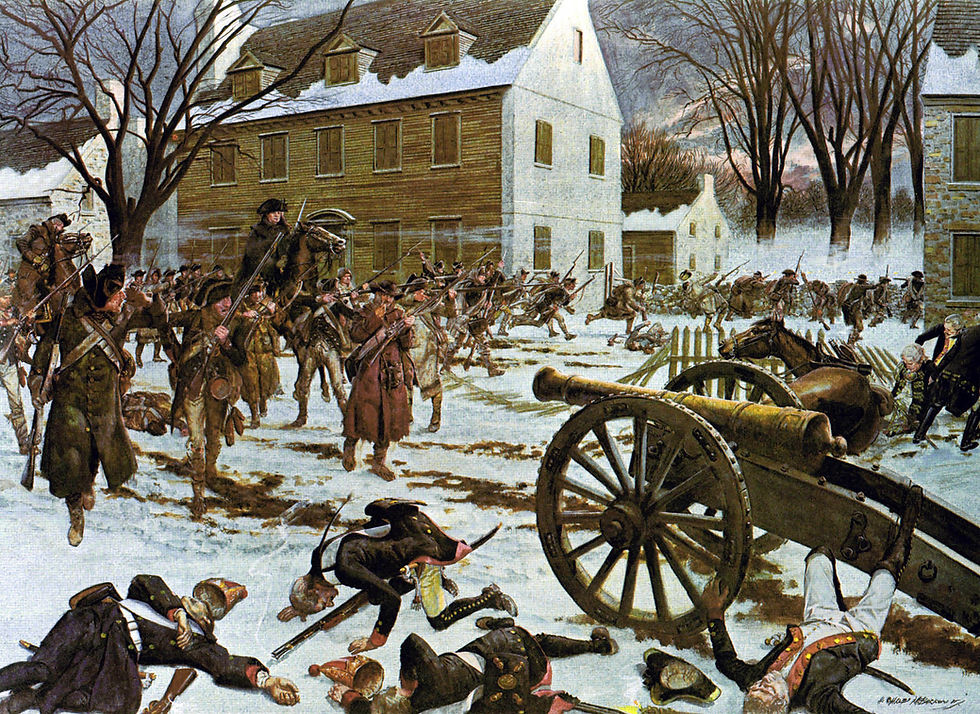This Day in History: Victory at Trenton
- tara
- Dec 26, 2024
- 2 min read
On this day in 1776, General George Washington wins the Battle of Trenton. 1776 had been a difficult year. The victory provided a much-needed morale boost.
As discussed in yesterday’s post, the beginning of December found Washington and British General William Howe on opposite sides of the Delaware River. As the weather deteriorated, Howe had decided to go into winter quarters. Washington, instead, decided to make a difficult crossing of the Delaware. His plan was to arrive at Trenton at 5 a.m., well before sunrise, so he could launch a surprise attack.

It wasn’t to be. Instead, Washington arrived at Trenton at 8 a.m., one hour after sunrise. Moreover, Washington had a smaller force than anticipated because two prongs of the American army had decided that the Delaware crossing was too difficult to attempt.
There were about 1,500 Hessians stationed at Trenton. (Hessians were German troops that had been hired by the British.) Interestingly, the Hessian officer in charge at Trenton, Johann Gottlieb Rall, had received two warnings that Americans were coming. He dismissed them both. A small shooting incident between some Hessian guards and an American patrol had occurred on Christmas Day, and Rall thought this was the attack of which he’d been warned.
He did not believe Americans capable of a larger attack, especially given the terrible weather.
Indeed, that weather turned out to be both a blessing and a curse. The snow and ice made the crossing almost impossible, but it also kept the Hessians from realizing that an attack was under way.
Americans attacked at 8 a.m.
One American officer, Henry Knox, later wrote: “The storm continued with great violence, but was in our backs, and consequently in the faces of the enemy.” Thus, the Hessian guards couldn’t tell what was happening at first. Once they realized what was happening, they began an orderly retreat back into the city.
The Americans had been up all night; they were tired, wet, and cold, but they fought gallantly. They set up cannons and cleared the main streets quickly. Meanwhile, the side streets were full of Hessians and Americans engaged in hand-to-hand combat. Things were happening quickly. Snow and gunpowder smoke swirled around and added to the confusion. Before long, Rall ordered a retreat to a nearby orchard, but the Hessians found themselves surrounded. They laid down their arms and surrendered: 900 of them were taken prisoner; 500 escaped; 21 were killed; 90 were wounded. By contrast, only four Americans were wounded and none were killed.
The battle was over in less than 45 minutes. Washington had won a stunning victory just when it was needed most.
Enjoyed this post? More Revolutionary War
stories can be found on my website, HERE.
Primary Sources:
David Hackett Fischer, Washington’s Crossing (2004)
David McCullough, 1776 (2005)
Edward G. Lengel, General George Washington: A Military Life (2005)
John Ferling, Almost a Miracle: The American Victory in the War of Independence (2007)
Comments